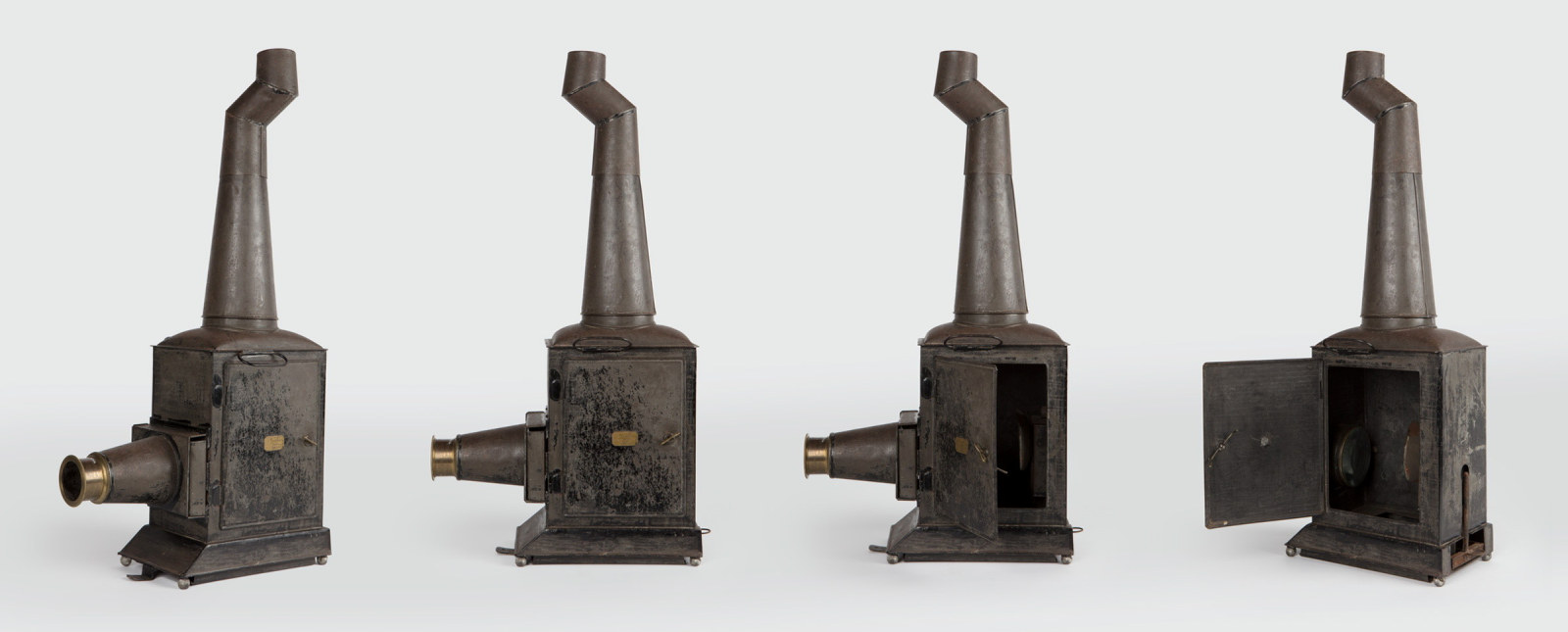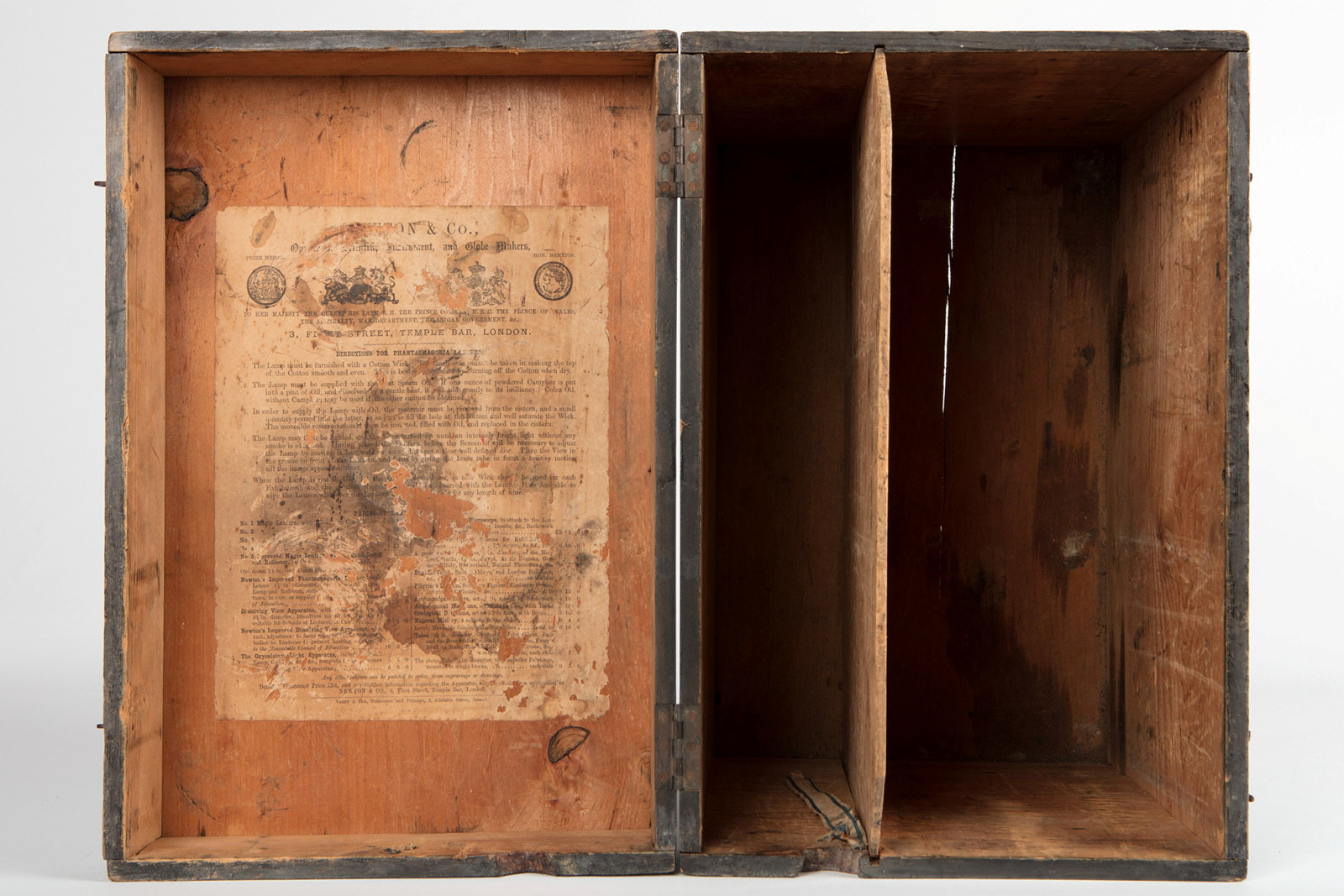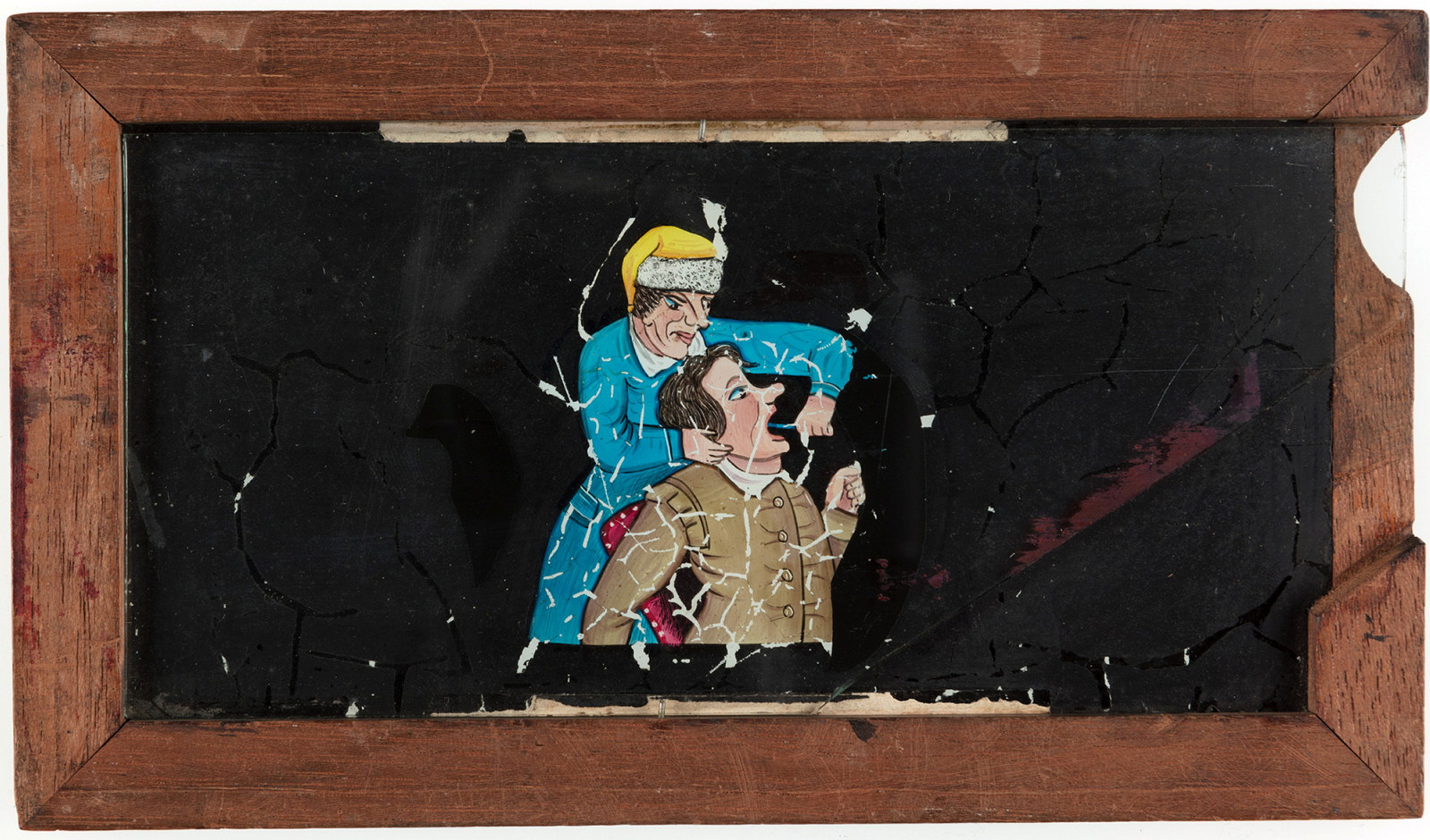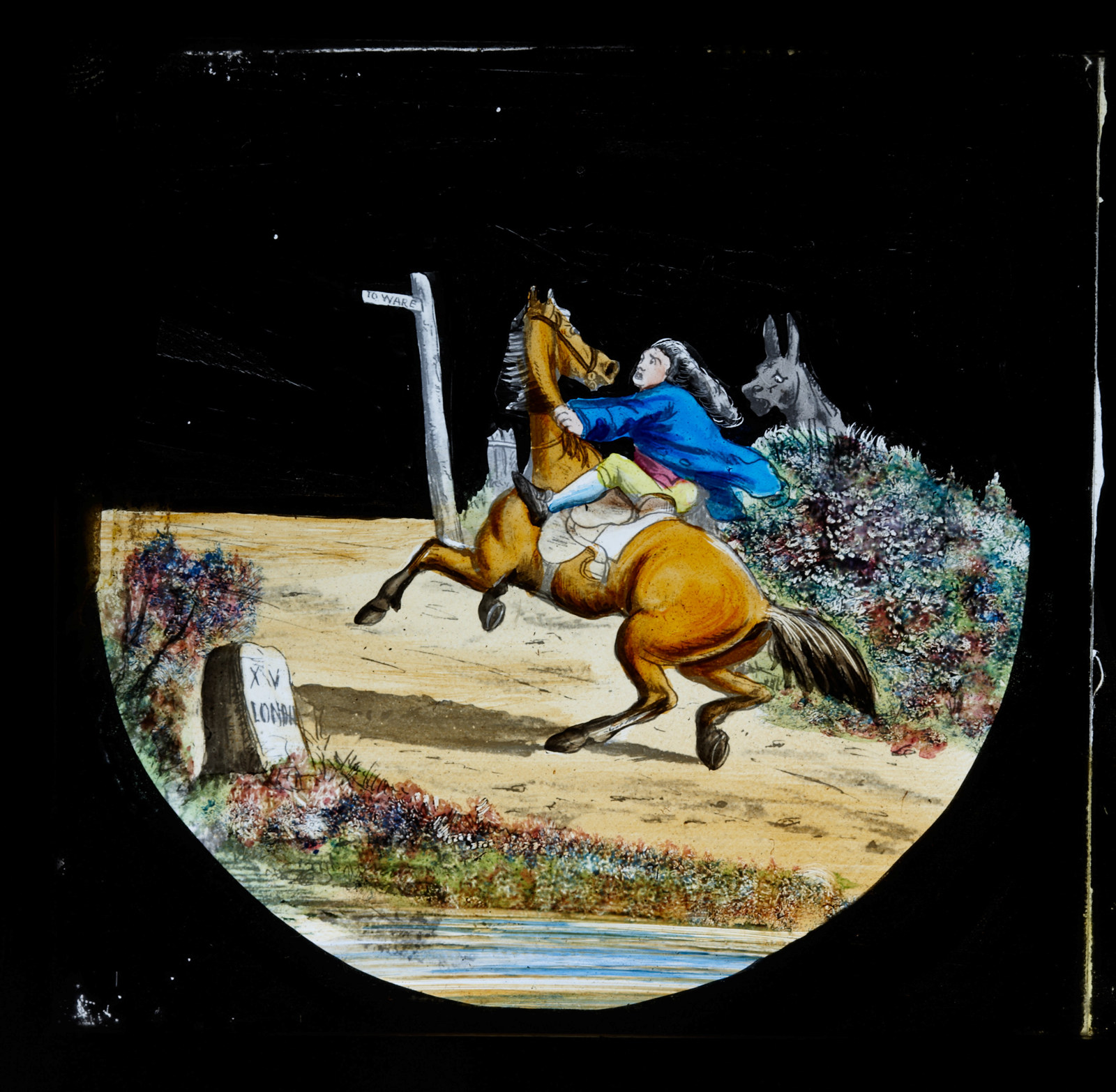Other lantern slides
As well as moveable comic slides the Rouse Hill Estate collection includes two examples of another type of mechanical slide: slides that incorporated a rack and pinion mechanism to create the circular movement of one slide over another.
By turning a handle attached to the rackwork, a slide titled ‘Aquarium’ could produce an effect of fish swimming around in circles. A brilliant geometrical design could produce an effect similar to a kaleidoscope when rotated. A variety of patterns could be produced by turning the handle slowly, then quickly, backwards and forwards. These designs were called chromotropes.
Newton & Co, like other manufacturers of lantern slides, also produced a number of general views as simple timber-mounted slides: landscapes; city streets; monuments and landmarks; and natural wonders. Two such slides survive at Rouse Hill House: a finely painted view of the Campanile di Giotto in the Piazza del Duomo in Florence, Italy, and a delicate painting titled ‘Plains of Lawgiving’. This slide was one of nearly 70 ‘views in the Holy Land and Eqypt’ published by Newton & Co in the 1860s.
There are two incomplete broken slides of views: one of the Aurora Borealis and the other of the Eddystone Lighthouse. Both views were popular lantern slide images, produced in more than one format as single slides or as one slide in a series. The Eddystone Lighthouse fragments at Rouse Hill depict the lighthouse on a moonlit night, beacon blazing. It might have been paired with a daytime view showing ships passing or a view of a storm at sea with ships wrecked but the evidence of its original format is now lost.
About the authors:
Megan Martin
Former Head, Collections & Access
Megan is the former head of Collections & Access at Sydney Living Museums. She has a particular interest in the working of the historical imagination, in teasing out the meanings of objects in museums collections and in crafting the stories that can be recovered/discovered through a close reading of those items of material culture.
Holly Schulte
Former Curator, Digital Assets
Holly was responsible for a range of collection related tasks with a focus on photography, digitisation and digital asset management. Her research interests address photography, collections, image making and associated technology.
Magic Lantern

Magic lantern at Rouse Hill Estate
The Rouse Hill House magic lantern is a mid-19th century example of a form of image projector which dates back to the 17th century
Published on
Related
Browse all
Newton & Co’s ‘Improved Phantasmagoria Lantern’
The magic lantern at Rouse Hill House was manufactured by Newton & Company, Opticians, Scientific Instruments and Globe Makers of Fleet Street, Temple Bar, London

Comic sliders
The Rouse Hill Estate collection of magic lantern slides includes ten comic slip slides, also called sliders or slippers

John Gilpin’s Ride
The fictional story of John Gilpin and his misadventures on a runaway horse was originally written as a comic ballad by English poet William Cowper in 1782